By 1529, the year of publication of Luther's Large Catechism, parishioners took the Gospel for granted. Many had forgotten at what great peril the freedom of their faith had been won. In the Large Catechism Luther set out to inculcate the centrality of the Gospel that was largely neglected and whose freedom was frequently abused. Whether Luther is therefore dealing with the Ten Commandments or the Lord's Supper, the dynamic of the Word of God as Gospel provides the cutting edge for what he says. To obscure the Gospel is to lose everything; to illuminate it is to gain all its promises. But it is not a Gospel with a purely individualistic thrust. To risk all for the Gospel is to relate one's self to society and the Christian community. And it is this corporate dimension of the Gospel, involving him who believes all to serve all, which gives Luther's exposition of the basic ingredients of the Christian faith such significance and relevance. Therefore the Large Catechism is a primary source for an understanding of the Christian ethos in action in Reformation Christianity. The Gospel is particularized. The social situation comes alive in concrete terms in a language whose meaning is unmistakable and clear.

The Greatest Books of Spiritual Wisdom : The Age of Reason, As a Man Thinketh, The Holy Spirit…
Saint Augustine, Pope Gregory I, Martin Luther, Friedrich Nietzsche, Thomas Paine, Leo Tolstoy, Athanasius of Alexandria, Gregory of Nyssa, Basil the Great, John of Damascus, Saint Thomas Aquinas, Thomas à Kempis, St. Teresa of Ávila, Brother Lawrence, David Hume, Ludwig Feuerbach, Charles Spurgeon, Andrew Murray, G. K. Chesterton, Arthur Pink, John Stuart Mill, Ralph Waldo Emerson, H. Emilie Cady, James Allen, Prentice Mulford, Florence Scovel Shinn, Wallace D. Wattles
book
The Santa's Great Treasure Chest: 450+ Christmas Novels, Tales, Carols & Legends : A Christmas Carol, Silent Night, The Gift of the Magi, Christmas-Tree Land, The Three Kings…
Louisa May Alcott, Charles Dickens, O. Henry, Mark Twain, Beatrix Potter, William Shakespeare, Harriet Beecher Stowe, Emily Dickinson, Robert Louis Stevenson, Rudyard Kipling, Hans Christian Andersen, Selma Lagerlöf, Fyodor Dostoevsky, Martin Luther, Walter Scott, J. M. Barrie, Anthony Trollope, Brothers Grimm, L. Frank Baum, Lucy Maud Montgomery, George Macdonald, Leo Tolstoy, Henry Van Dyke, E. T. A. Hoffmann, Clement Moore, Henry Wadsworth Longfellow, William Wordsworth, Alfred Lord Tennyson, William Butler Yeats, Eleanor H. Porter, Jacob A. Riis, Susan Anne Livingston, Ridley Sedgwick, Sophie May, Lucas Malet, Juliana Horatia Ewing, Alice Hale Burnett, Ernest Ingersoll, Annie F. Johnston, Amanda M. Douglas, Amy Ella Blanchard, Carolyn Wells, Walter Crane, Thomas Nelson Page, Florence L. Barclay, A. S. Boyd, Edward A. Rand, Max Brand, William John Locke, Nora A. Smith, Phebe A. Curtiss, Nellie C. King, Booker T. Washington, Lucy Wheelock, Aunt Hede, Frederick E. Dewhurst, Maud Lindsay, Marjorie L. C. Pickthall, Jay T. Stocking, Anna Robinson, Florence M. Kingsley, Olive Thorne Miller, M. A. L. Lane, Elizabeth Harkison, Raymond Mcalden, F. E. Mann, Winifred M. Kirkland, François Coppée, Katherine Pyle, Grace Margaret Gallaher, Elia W. Peattie, F. Arnstein, James Weber Linn, Anne Hollingsworth Wharton, Elbridge S. Brooks, Isabel Cecilia Williams, Anton Chekhov, Armando Palacio Valdés, André Theuriet, Alphonse Daudet, Benito Pérez Galdós, Antonio Maré, Pedro A. De Alarcón, Jules Simon, Marcel Prévost, Gustavo Adolfo Bécquer, Maxime Du Camp, Mary Hartwell Catherwood, F. L. Stealey, Kate Upson Clark, Marion Clifford, E. E. Hale, Willis Boyd Allen, Edgar Wallace, Georg Schuster, Harrison S. Morris, Bjørnstjerne Bjørnson, Matilda Betham Edwards, Angelo J. Lewis, Vernon Lee, Guy De Maupassant, Saki, Bret Harte, Robert E. Howard, William Francis Dawson, Hamilton Wright Mabie, Christopher North, Susan Coolidge, Oliver Bell Bunce, Phillips Brooks, William Drummond, James Russell Lowell, Alfred Domett, Reginald Heber, Dinah Maria Mulock, Margaret Deland, John Addington Symonds, Edward Thring, Cecil Frances Alexander, Mary Austin, James S. Park, Isaac Watts, Robert Herrick, Edmund Hamilton Sears, Ben Jonson, Edmund Bolton, Robert Southwell, C.s. Stone, James Whitcomb Riley, Frances Ridley Havergal, William Morris, Charles Mackay, Harriet F. Blodgett, Eliza Cook, George Wither, John G. Whittier, Richard Watson Gilder, Tudor Jenks, William Makepeace Thackeray, Henry Vaughan, Christian Burke, Andrew Lang, Emily Huntington Miller, Cyril Winterbotham, Enoch Arnold Bennett, Mary Louisa Molesworth, Meredith Nicholson, A. M. Williamson, C. N. Williamson, Elizabeth Cleghorn Gaskell, James Selwin Tait, Booth Tarkington, Evaleen Stein, Frances Hodgson Burnett, Frank Samuel Child, Samuel McChord Crothers, Sarah Orne Jewett, Georgianna M. Bishop, Sarah P. Doughty, John Punnett Peters, Mary E. Wilkins Freeman, Mary Elizabeth Braddon, Margaret Sidney, Nell Speed, Laura Elizabeth Richards, Arthur Conan Doyle, Willa Cather, Ralph Henry Barbour, Cyrus Townsend Brady, Mary Stewart Cutting, William Douglas O'Connor, Nathaniel Hawthorne, Ruth McEnery Stuart, S. Weir Mitchell, John Leighton, W. H. H. Murray, Alice Duer Miller, Ellis Parker Butler, Washington Irving
book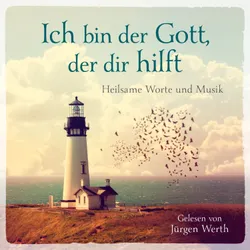
Ich bin der Gott, der dir hilft : Heilsame Worte und Musik
Dietrich Bonhoeffer, Martin Luther, Corrie ten Boom
audiobook
Die Weihnachtsgeschichte nach Lukas nach der Übersetzung Martin Luthers
Martin Luther
audiobook
Die Weihnachtsgeschichte nach Matthäus nach der Übersetzung Martin Luthers
Martin Luther
audiobook
Die Psalmen der Bibel
Martin Luther
audiobook
Die Bibel - Das Evangelium nach Johannes nach der Übersetzung Martin Luthers : Gesprochen von Sebastian Fuchs
Martin Luther
audiobook
Vom kriege widder die Türcken : Ein reformatorisches Manifest gegen die Osmanen
Martin Luther
book
Revolution der Reformation: Geschichte und Schlüsseltexte : Biographie von Martin Luther und Katharina von Bora, 95 Thesen, Lutherbibel, Von der Freiheit eines Christenmenschen
Leopold von Ranke, Martin Luther, Ricarda Huch, Stefan Zweig, Philipp Melanchthon, Albrecht Thoma, Julius Kostliin
book
Die Entwicklung der Reformation: Wegweisende Werke : Biographie von Martin Luther und Katharina von Bora, 95 Thesen, Lutherbibel, Von der Freiheit eines Christenmenschen
Martin Luther, Leopold von Ranke, Ricarda Huch, Stefan Zweig, Philipp Melanchthon, Albrecht Thoma, Julius Kostliin
book
Kernschriften des Glaubens: Die Pfeiler des Christentums in Worten : Die Bibel, Die Apokryphen, Der Weg der Welt, Die Geistlichen Übungen, 95 Thesen, Das Reich Gottes ist in Euch
Aurelius Augustinus, Ignatius von Loyola, Thomas von Kempen, Hildegard von Bingen, Thomas von Aquin, Anselm von Canterbury, Bonaventura, Thomas Morus, Tommaso Campanella, Nicolaus von Cues, Philipp Melanchthon, Martin Luther, Lew Tolstoi
book
Fundamentale Texte des Christentums: Eine Sammlung der wichtigsten Schriften : Die Bibel, Die Nachfolge Christi, Der kleine und der große Katechismus, Die Bekenntnisse des heiligen Augustinus
Aurelius Augustinus, Ignatius von Loyola, Thomas von Kempen, Hildegard von Bingen, Thomas von Aquin, Anselm von Canterbury, Bonaventura, Thomas Morus, Tommaso Campanella, Nicolaus von Cues, Philipp Melanchthon, Lew Tolstoi, Martin Luther
book
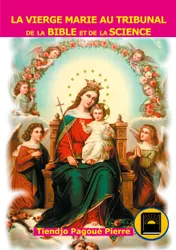
La vierge Marie au tribunal de la Bible
Pierre Tiendjo Pagoué
book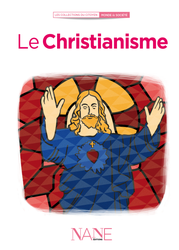
Le Christianisme
Marianne Leclère
book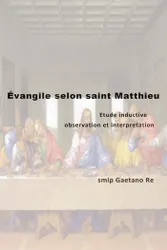
Évangile selon saint Matthieu : Étude inductive, observation et interprétation
Smip Gaetano Re
book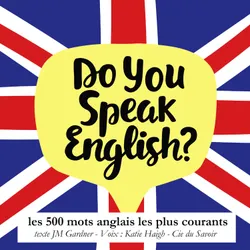
Do you speak english ? Les 500 mots anglais les plus courants
J. M. Gardner
audiobook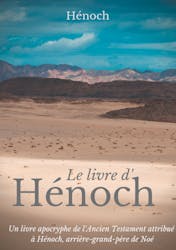
Le Livre d'Hénoch
Hénoch .
book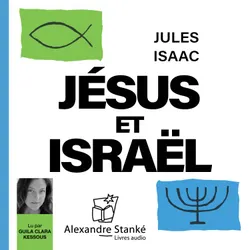
Jésus et Israël
Jules Issac
audiobook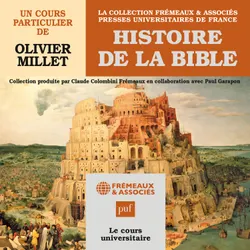
Histoire de la Bible. Un cours particulier de Olivier Millet
Olivier Millet
audiobook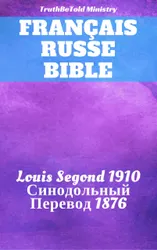
Bible Français Russe
TruthBeTold Ministry
book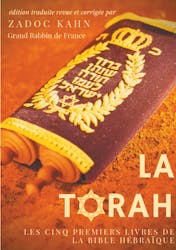
La Torah (édition revue et corrigée, précédée d'une introduction et de conseils de lecture de Zadoc Kahn)
Zadoc Kahn
book
Bible: Évangile selon Jean
Saint Jean
audiobook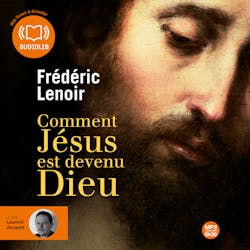
Comment Jésus est devenu Dieu
Frédéric Lenoir
audiobook
Je parle anglais (initiation)
Professeur Hicks
audiobook
